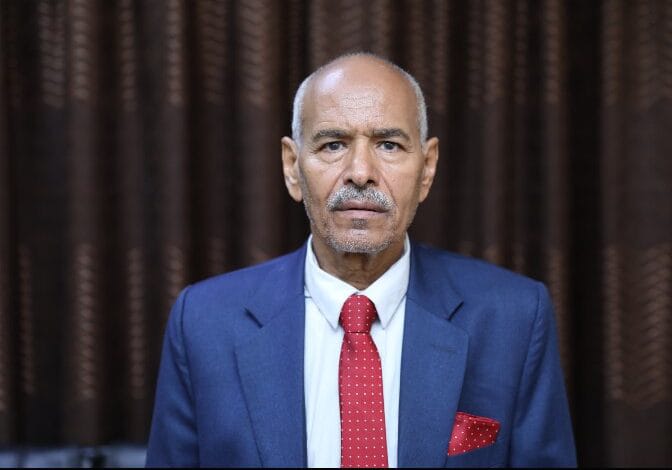Towards a Just and Sustainable Peace in Sudan

By: Foreign Minister Hussein Awad Ali
There is no doubt that the world is watching the tragic developments in Sudan, triggered by the war between the Rapid Support Forces (RSF) militia against the Sudanese people and state since April 2023. This war aims to reshape Sudan, its state, demographics, and perhaps even its map, to achieve the objectives of a regional power with implicit approval or indifference from some global actors.
The international community is fully aware of the atrocities and gross violations of international humanitarian law committed by the militia against the Sudanese people. I affirm that our armed forces are fully capable of defeating the militia. The Sudanese Armed Forces are waging this war with unwavering determination to restore peace and stability, enabling our people to rebuild their lives and mend the national unity and social fabric that the war has gravely threatened.
Why does the war continue?
This war would not have lasted so long without the logistical, political, and media support that the militia receives from some regional countries. Therefore, we in Sudan call on all peace-loving nations, as well as international and regional organizations, to unequivocally condemn external interference in Sudan’s internal affairs and to demand that these countries cease supporting the rebel militia with money, weapons, and mercenaries. We believe this is the shortest path to ending the war.
We also appeal to all countries, especially our brotherly and friendly nations, to condemn the crimes and atrocities committed by the militia, alongside their serious violations of international humanitarian law. The militia’s breach of the Jeddah Declaration on the protection of civilians and the delivery of relief necessitates a decisive and deterrent international response.
Pursuing Peace
Sudan welcomes all serious initiatives aimed at restoring peace and stability. However, Sudan remains steadfast in its commitment to the Jeddah platform as a forum for negotiating a ceasefire. We insist on implementing the decisions of the Jeddah platform, which include protecting civilians and allowing them to return to their homes as a prerequisite for reaching a final agreement on a ceasefire.
The Jeddah Declaration remains the only binding and practical framework for addressing humanitarian issues and protecting civilians, providing the most viable basis for a ceasefire and lasting peace. If implemented in good faith since its signing just four weeks after the war began, it could have led to an early peaceful settlement. Any attempt to undermine or disregard the Jeddah Declaration will hinder the peaceful resolution of the crisis.
Unfortunately, the lenient or sympathetic stance of many influential members of the international community towards the militia’s disregard for the declaration and relevant Security Council resolutions, particularly Resolution 2736 (2024), only reinforces the militia’s strategy of buying time and evading serious peace commitments.
No Imminent Famine
Regarding the humanitarian situation, Sudan is committed to protecting and providing assistance to those in need. However, I must clarify that Sudan is not facing an imminent famine, despite the militia’s concerted and deliberate campaign to starve the population in certain areas of the country.
The militia’s strategy includes preventing farming in key food-producing areas by stealing agricultural machinery, inputs, and crops, shutting down irrigation channels, terrorizing farmers, obstructing relief deliveries, and looting major food warehouses.
Nevertheless, according to the latest joint survey conducted by the Ministry of Agriculture and specialized UN agencies, there is only a slight shortfall in the country’s staple grains, something that sometimes occurs due to various reasons, such as insufficient rainfall. As an emergency plan, we will plant sufficient quantities of sorghum, the main staple grain, in safe areas, even in those not traditionally cultivated. As for wheat, which is mainly consumed in urban centers, the country will continue to rely on imports.
Portraying the humanitarian challenge as dependent on a specific border corridor is misleading. Currently, there are five open border crossings for the passage of aid, in addition to seven international airports ready to receive aid flights.
The recent statement by “Doctors Without Borders” regarding the militia’s seizure of its trucks loaded with medicines and therapeutic food supplies near El Fasher, after crossing from Chad, highlights that the real problem lies in the militia’s deliberate plan to obstruct the delivery of aid, not in the use of a specific entry point.
Furthermore, Sudan calls on the international community and relief organizations to fulfill their humanitarian aid pledges. So far, only about 17% of these pledges have been met.
Finally, I would like to reiterate our determination to achieve the goals of the glorious December 2019 Revolution, transition to democracy, and form a transitional government after the war. The primary tasks of this government will be to dissolve militias in favor of a unified national army and to hold free and fair general elections, allowing the Sudanese people to choose their leaders and express their hopes and aspirations for a better future.



